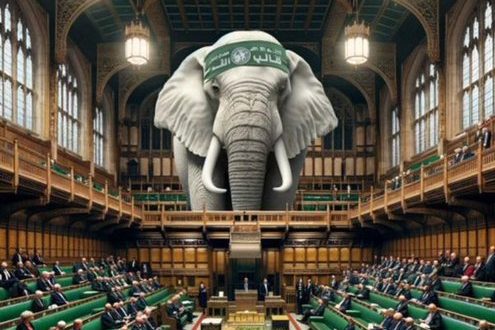This is a guest post by Sarka
Having lived abroad for more than two decades I have often been asked where I am from, and often spontaneously offered the information as explanation for the imperfections of my Czech. Automatically, naturally, never having made some conscious policy decision about the matter, I have always used the words “English” or “from England” and not “British” or “from Britain”.
I found myself pondering on this as I read Kenan Malik’s latest instalment of his critique of David Goodhart’s The British Dream, which he finds illiberal in its attempt to rehabilitate the notion of the nation as historical and cultural community because this notion tends to exclude the immigrant. Tackling the issue of what “integration” means, Malik draws on a really fascinating just published study ‘Who feels British?’, carried out on data from the 2011 census by the Centre on Dynamics of Ethnicity at Manchester University. Malik writes, “While the majority of people of Bangladeshi, Pakistani, Indian and Caribbean origin defined themselves as British, 72% of ‘white British’ rejected that label, viewing themselves only as English. They could have defined themselves as both English and British, but the majority chose not to.”
He then immediately argues that “The figures suggest a fragmentation of identity, and a high level of disengagement among those classified as ‘white British’ from a sense of Britishness. They suggest, too, that ‘integration’ is not merely a matter for minorities; indeed, that it might be more of an issue for the ‘white British’.”
It’s overall a thoughtful piece, but I think that here Malik is wrong-headed. In his keenness to defend his ideal of a completely de-ethnicised British identity as cure for alienated “tribalism” he has misunderstood the relationship between Englishness and Britishness, and seen some new fragmentation where none really exists, or at least not of the kind he suggests.
I don’t know whether I would have ticked both English and British boxes in the census (not having been there), but I might well not have ticked the British box, not out of any special rejection of or problem with my “British identity”, but for much the same reasons that I would never think of describing myself as “British English”: it would seem so odd and redundant (as would British Scot, British Welsh).
What does Britishness mean to English people? First, it’s just the civic bureaucratic dimension of national identity – both in the UK and abroad I define myself as “British” for officials, forms and so forth. But of course it has a further historical, political-cultural and so emotive side. Originally it was fostered by the state [particularly during the Napoleonic Wars] for the purpose of uniting the kingdom not just institutionally but in terms of wider patriotic sentiment. Although state sponsored, it did over the years of successful union and empire put down real roots in the ground, and characteristically acquired even more symbolic power in times of war in the 20th century. Notoriously, it has been the English who have been most at ease with Britishness, while to greater or lesser extents the Scots and Welsh [not to speak of the Irish!] have been ambivalent about it, feeling the countervailing tug of the kind of modern nationalism that the English never had any reason to develop fully.
Is this relevant to Malik’s contemporary arguments, focused on the quite different issue of immigration? Yes, because it indicates how Britishness has never been a kind of parallel identity for English people, or some sort of hyphenated or hybridised identity a la African-American, or Czecho-American, or even British Asian. Instead it is experienced just as a corollary of Englishness, a register or dimension of identity, typically invoked and used only in certain contexts. And this explains the survey results far better than some theory of alienation and fragmentation. It’s very notable, by the way, that while the EDL has gone back to ethnicity in its title, its leaders use the term “British” all the time.
Quite obviously though, the English could lose much of the British dimension of their identity, and indeed this looks more possible now than at any time in modern history before. It would happen not because of immigration, but as a result of Scottish secession from the union. And it’s an interesting question what impact this would have on the position of minorities and the debate on Britishness as a unifier, when it seems to be the least integrated communities that invest the most in declared Britishness.
PS Not unexpected, but striking, is the survey finding that “British Jews” in England almost all self-define as English.


